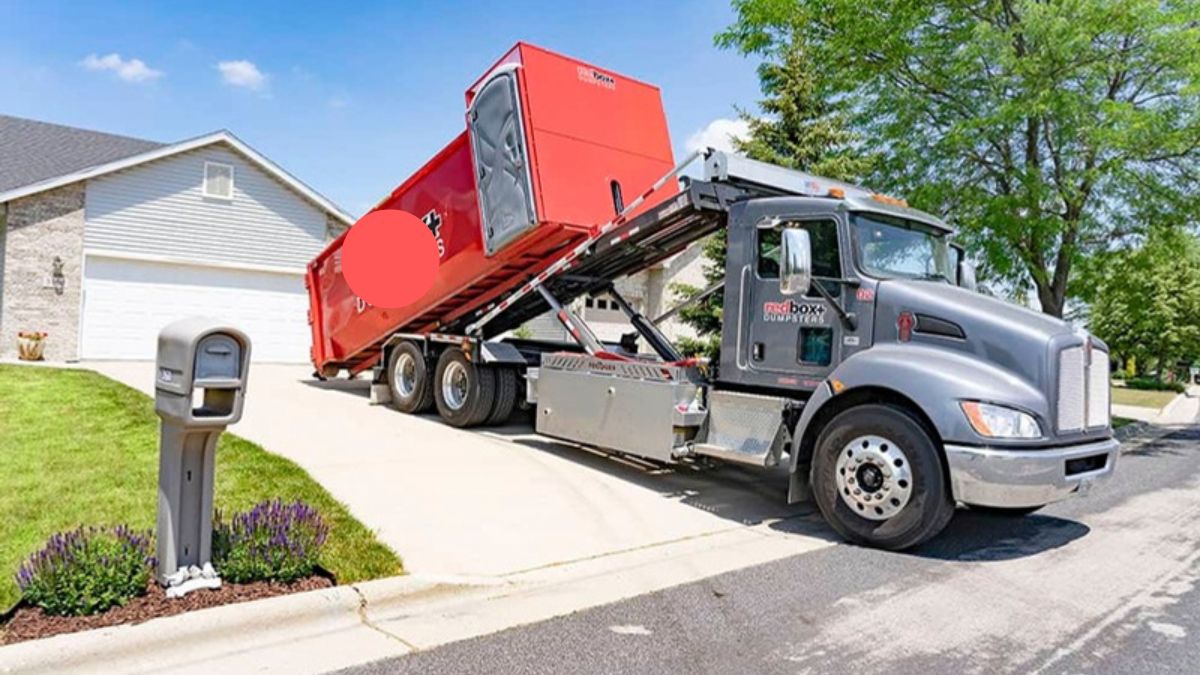Finding the right dumpster rental can feel overwhelming, especially if you’re navigating it for the first time. Whether you’re managing a home renovation, clearing out years of clutter, or tackling a construction project, a well-chosen dumpster saves time, effort, and money.
I learned this the hard way when I decided to clear out my old garage. Years of forgotten items piled up—a mix of rusty tools, broken furniture, and more. Initially, I thought I could haul everything myself. Several back-and-forth trips later, I realized a better solution was out there.
Table of Contents
Why Dumpster Rentals Make Sense for Large Projects
Imagine hauling ten or more loads of junk to the landfill in your own vehicle. Sounds exhausting, right? That’s exactly why dumpsters are a game-changer. Instead of endless trips, all your debris goes into one container, picked up and hauled away for you.
Dumpsters also help maintain organization during chaotic projects. When renovating my kitchen, I rented a mid-sized container, which made the process so much smoother. The crew tossed old cabinets, flooring, and broken tiles directly into the dumpster, keeping the workspace clean and efficient.
If you’re curious about the different dumpster sizes available for projects like this, learn more.
Choosing the Right Dumpster Size
One mistake people often make is renting the wrong size. Too small, and you’ll run out of space. Too large, and you’ll pay for unnecessary capacity.
For smaller cleanouts, a 10-yard dumpster works well. It fits easily in most driveways and holds about three pickup truck loads of debris.
Medium projects, like bathroom remodels, might need a 15- or 20-yard dumpster. When I replaced the flooring throughout my home, the 15-yard option was perfect—it was spacious without being excessive.
Construction sites or major renovations demand something larger, like a 30- or 40-yard dumpster. These sizes can handle everything from demolished walls to heavy roofing materials.
Local Regulations and Permits
One aspect often overlooked is local regulations. Certain municipalities require permits for placing dumpsters on the street or public property. When renting, check if your provider assists with obtaining permits or guides you through the process.
I once rented a dumpster for a landscaping overhaul, only to realize halfway through that I needed a permit for street placement. Fortunately, the rental company stepped in and expedited the paperwork, saving me a potential fine.
Hidden Costs to Watch For
While dumpster rentals simplify projects, hidden fees can catch you off guard. Overweight charges are one of the most common surprises. Most companies set weight limits based on the size of the dumpster, and exceeding those limits incurs additional fees.
Another hidden cost is contamination fees. Mixing restricted items like paint, batteries, or hazardous waste with general debris can lead to penalties. Always check the accepted materials list before tossing items into the bin.
Lastly, consider rental timeframes. Extending a rental beyond the agreed period may result in daily charges. Planning your project timeline can help avoid these extra costs.
Sustainable Dumpster Practices
As sustainability becomes a growing concern, many dumpster rental companies offer eco-friendly disposal options. These services ensure that recyclable materials like wood, metal, and concrete are separated and reused.
During a recent spring-cleaning spree, I made a conscious effort to minimize waste. The rental service I used recycled about 70% of my junk, which made me feel good about reducing my landfill contribution.
Ask about recycling services when booking your rental. Not only does this benefit the planet, but it may also lower your disposal fees.
Alternatives to Dumpster Rentals
If you’re unsure about committing to a full-sized dumpster, consider alternative solutions.
- Bag-style disposal solutions: These are flexible, portable bags sold at hardware stores. They work well for minor cleanups and can hold up to 3,000 pounds.
- Truck hauling services: If you have only a few bulky items, a junk removal service might be more cost-effective.
During my garage cleanout, I initially tried a disposal bag. It worked for a few small items, but once I got to heavier debris, the limitations became obvious. That’s when I realized a dumpster rental was the right choice all along.
Tips for Maximizing Your Dumpster Rental
- Plan placement carefully: Ensure the delivery area is clear of obstacles like vehicles or low-hanging tree branches. A driveway often works best for convenience.
- Load efficiently: Place flat items like wood or drywall at the bottom, and stack lighter debris on top. This method maximizes space.
- Avoid last-minute rentals: Book your dumpster at least a week in advance to ensure availability, especially during busy seasons like spring and summer.
Final Thoughts on Dumpster Rental Benefits
From my personal experiences, a dumpster rental simplifies even the most daunting projects. The convenience of having a centralized disposal container outweighs the minor cost of renting. Plus, with options tailored to every budget and project size, finding a dumpster that fits your needs is easier than ever.
The next time you face a big cleanup or renovation, think about how much time and effort you’ll save by having the right dumpster at your disposal. Investing in the right solution now ensures smoother, stress-free projects down the road.

